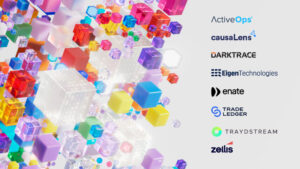
How to bring your HR into the here and now
Old school –> New style
Straw poll time. What would you rather have a freshly cooked meal or leftovers? The latest computer or one from a decade ago? Tickets to see a movie that’s just come out, or to one you’ve seen lots of times before?
Let’s face it. New is often better. Because new is exciting. It’s opportunity. A breath of fresh air. And a chance to do things differently. So, if you’re anything like us, you’ll be excited to hear about the latest developments in HR.
These developments have come about because of digital transformation, which is driving change in the employment landscape. For instance, did you know that 65% of primary age children will end up taking jobs that don’t exist yet? [1] Big figures. And a big challenge ahead for HR departments as they try to benefit from change. As Andrea Winfield, UK HR Director for Microsoft, says: “Digital transformation is affecting everyone: every business, every industry, every geography. And with digital transformation comes connected people.”
So, what new human capital trends can we see right now, or on the immediate horizon? Here are what Andrea Winfield sees as the top five.
War for talent
Research suggests that, as the demand for digitally-skilled individuals increases, critical roles will be left unfilled. In fact, Gartner predicts that 30% of tech jobs will go unfilled due to talent shortages by 2020[2]. The war for talent may be on, but new collar jobs are on the rise. These are roles within new tech fields such as cloud, cognitive computing and digital design.
“Traditionally, what separated an average company from a great company had been technology…Today, what separates an average company from a great company is talent. [3]” Wade Burgess, VP Talent Solutions, LinkedIn
Rise of AI and automated work
The way people work is changing. In all sorts of businesses and across all kinds of industries. The reason? More and more business problems are being solved by automation, AI and data analysis. And the growth of this kind of technology is transforming the modern workplace. As Andrea says, “Ten years from now, 70 percent of jobs will be new or different, and that’s never made relearning or reskilling more important.”
In HR, automated processes are helping HR professionals to:
- Engage and manage talent during the interview process
- Ensure employees are connected, productive and stay with the company for longer
- Retain and build key employee talent
In short, automated technology will help your team become more efficient, while boosting your business outcomes.
Diversity and inclusion
Author Stephen Covey once said: “Strength lies in differences, not similarities.” The workforce of today is more aware of this fact than ever before. 80% of people say inclusion is important when choosing an employer, and 72% would leave a company for a more inclusive one [4].
Purpose and culture
These days, an appealing company culture can make all the difference to people looking for new jobs. Research shows that 62% of millennials want jobs with social impact and purpose [5]. And it seems that many businesses are already rising to the challenge. Andrea can clearly see its effect at Microsoft: “At Microsoft, most people come to work because it’s the place where you can really make a difference and live out your personal values”.
Fluidity and flexibility
The everywhere office is on the rise. More and more employees want to work from home. And some are even happy to take a pay cut to avoid the daily commute. Leadership relationships are becoming more fluid too. We’re seeing a shift from formal leadership relationships to dynamic, matrixed structures. In short, new and evolving working practices are breaking down traditional boundaries. And things are more fluid and flexible than ever before.
Watch our short video to see Andrea Winfield, UK HR Director for Microsoft, talk more on the latest trends.
So, how can you make sure you make these trends work for you? The answer is: don’t just view digital transformation as the catalyst for HR change everywhere else. It’s just as able to make life better for your own department. As a HR professional, here’s what it could mean for you:
Making sure you attract the best candidates
Giving people good experiences and justified expectations starts even before they apply. If you can make that happen, you can keep the best candidates knocking at your door. Read more.
Onboarding
Tony Lasocki. Talent Acquisition Lead at Microsoft says: “Get [onboarding] right and you’ve a productive, happy employee…Get it wrong, and you’ve got an impact on your brand equity.” Which one describes you? Read more.
Keeping HR functions simple
Are you running multiple HR systems? If so, the result could be lots of extra work and an employee experience that’s fragmented at best. But there’s a simpler way. Read more.
Boosting operational efficiency
When your team gets involved in operational issues, they can’t focus on achieving more strategic goals. So, the question is: how can you go from request to result in the most effective way? Read more.
“Microsoft doesn’t have a silver bullet”, Andrea comments. “But technology is a real accelerator of cultural change.”
Ready to accelerate? Visit our website to discover how Dynamics 365 can help you transform for the new HR landscape. You can also find out how we’re preparing for the new landscape with our very own digital transformation.
Find out more about Dynamics 365 for Talent
[1] http://reports.weforum.org/future-of-jobs-2016/chapter-1-the-future-of-jobs-and-skills/




